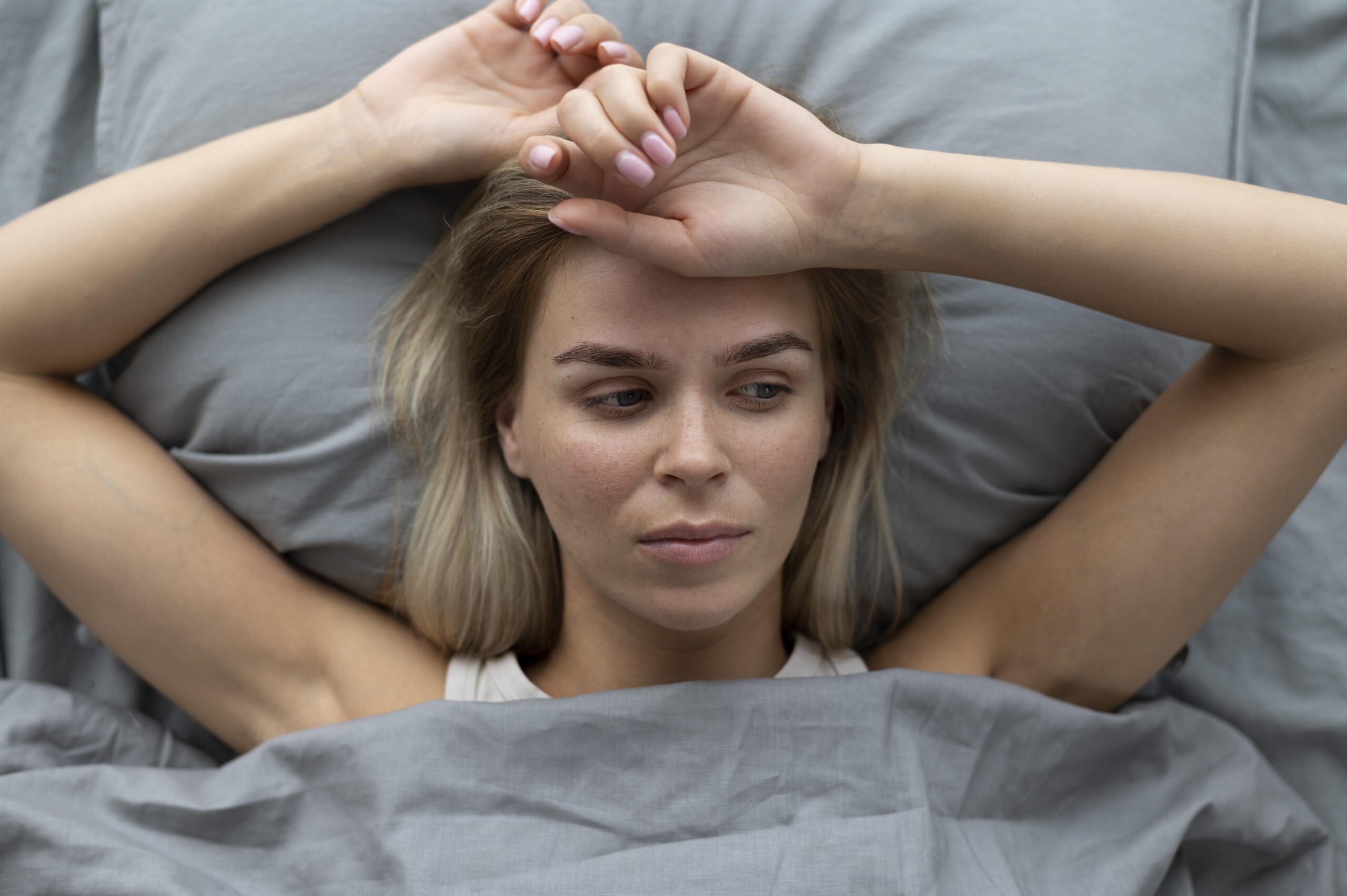Sleep is as very important to our well being as meals and water. But, in at this time’s fast-paced world, hundreds of thousands of individuals reduce corners on sleep—knowingly or unknowingly. Whereas lacking a number of hours right here and there could seem innocent, continual sleep deprivation can take a critical toll on your psychological well being.
What Is Sleep Deprivation?
Sleep deprivation happens when an individual will get much less sleep than they should really feel awake and alert. Whereas most adults want 7 to 9 hours of sleep per night time, many get far much less on account of busy schedules, stress, or sleep issues like insomnia or sleep apnea.
Continual sleep deprivation doesn’t simply make you’re feeling drained, it disrupts your cognitive operate, temper regulation, and psychological well-being.
The Connection Between Sleep and Psychological Well being
Sleep and psychological well being are deeply interconnected. One impacts the opposite in a steady loop.
1. Mind Perform and Emotional Steadiness
Once you sleep, your mind processes feelings, shops recollections, and resets itself. With out sufficient relaxation, this course of is interrupted.
- Lack of sleep impairs the amygdala, the a part of your mind liable for emotional responses. This results in exaggerated emotional reactions to emphasize and minor inconveniences.
- It additionally weakens your prefrontal cortex, which is important for decision-making and impulse management.
This neurological imbalance can result in temper swings, irritability, and problem dealing with on a regular basis stress.
2. Elevated Threat of Psychological Well being Problems
Quite a few research hyperlink sleep deprivation to psychological well being situations akin to:
- Despair: Folks with insomnia are 10 instances extra more likely to develop melancholy in comparison with those that sleep nicely. A research revealed in Sleep journal discovered that 87% of people with melancholy reported sleep points as a key symptom [1].
- Anxiousness: Poor sleep will increase anticipatory anxiousness, particularly in folks with generalized anxiousness dysfunction.
- Bipolar Dysfunction: Lack of sleep can set off manic episodes in folks with bipolar dysfunction.
- Psychosis: Extreme sleep deprivation might result in hallucinations and delusional pondering.
Statistics That Spotlight the Drawback
- 1 in 3 adults in the US doesn’t get sufficient sleep regularly [2].
- 50% to 80% of sufferers in a typical psychiatric apply undergo from continual sleep issues, in comparison with 10% to 18% of adults within the normal U.S. inhabitants [3].
- Adolescents who sleep lower than 6 hours per night time are 3 instances extra possible to report suicidal ideas than those that sleep 8 hours [4].
These figures aren’t simply numbers, they replicate a rising public well being concern.
How Sleep Deprivation Impacts Completely different Age Teams

Teenagers and Younger Adults
Youngsters want round 8 to 10 hours of sleep every night time, but college schedules, social media, and tutorial stress typically cut back their relaxation. Sleep-deprived teenagers present elevated dangers of:
- Poor tutorial efficiency
- Substance abuse
- Despair and anxiousness
- Suicidal ideation
Working Adults
Job stress and digital distractions preserve many adults up at night time. Sleep loss on this group typically leads to:
- Greater ranges of burnout
- Lowered productiveness
- Elevated reliance on caffeine or stimulants
- Strained relationships
Older Adults
Ageing impacts sleep high quality on account of well being situations, medicines, and adjustments in circadian rhythm. Poor sleep in older adults might result in:
- Reminiscence issues
- Threat of dementia
- Elevated loneliness and melancholy
Indicators You’re Not Getting Sufficient Sleep
Generally we normalize poor sleep with out realizing its harm. Be careful for these warning indicators:
- Daytime fatigue and low power
- Bother concentrating or remembering
- Temper swings or irritability
- Problem dealing with stress
- Elevated cravings for sugary meals
If these signs sound acquainted, it’s time to take your sleep critically.
Methods to Enhance Sleep and Help Psychological Well being
The excellent news is that enhancing sleep can have a profound influence in your psychological well-being. Listed below are evidence-based methods:
1. Keep a Constant Sleep Schedule
Go to mattress and get up on the identical time—even on weekends. Consistency reinforces your physique’s inner clock.
2. Create a Sleep-Pleasant Surroundings
- Preserve your bed room cool, darkish, and quiet.
- Keep away from utilizing your telephone or laptop an hour earlier than mattress.
- Put money into a cushty mattress and pillows.
3. Restrict Caffeine and Alcohol
Each substances disrupt sleep patterns. Attempt to reduce them off by early afternoon.
4. Follow Rest Methods
Respiration workout routines, meditation, or a heat bathtub earlier than mattress can calm your thoughts and physique.
5. Search Skilled Assist
If you happen to’re battling continual insomnia or psychological well being challenges, seek the advice of a therapist or sleep specialist. Cognitive Behavioral Remedy for Insomnia (CBT-I) has proven nice success in treating each sleep points and melancholy concurrently.
Remaining Ideas
Sleep isn’t a luxurious, it’s a necessity. With out it, our brains can’t regulate temper, handle stress, or operate clearly. Whereas psychological well being issues can disrupt sleep, lack of sleep may gasoline those self same issues, making a vicious cycle.
By prioritizing sleep, you not solely increase your psychological well being but in addition enhance your high quality of life. Make relaxation a non-negotiable a part of your self-care routine. Your thoughts will thanks.
References
[1] Baglioni, C. et al. (2011). Sleep and psychological issues: A meta-analysis of polysomnographic analysis. Sleep Drugs Critiques, 15(4), 263–270.
[2] Facilities for Illness Management and Prevention (CDC). (2022). 1 in 3 adults don’t get sufficient sleep. https://www.cdc.gov/sleep/index.html
[3] Nationwide Alliance on Psychological Sickness (NAMI). (2023). Sleep Problems. https://www.nami.org
[4] Wheaton, A. G., Ferro, G. A., & Croft, J. B. (2016). Faculty begin instances for center college and highschool college students — United States, 2011–12 college 12 months. Morbidity and Mortality Weekly Report, 64(30), 811–815.
Please comply with and like us:




